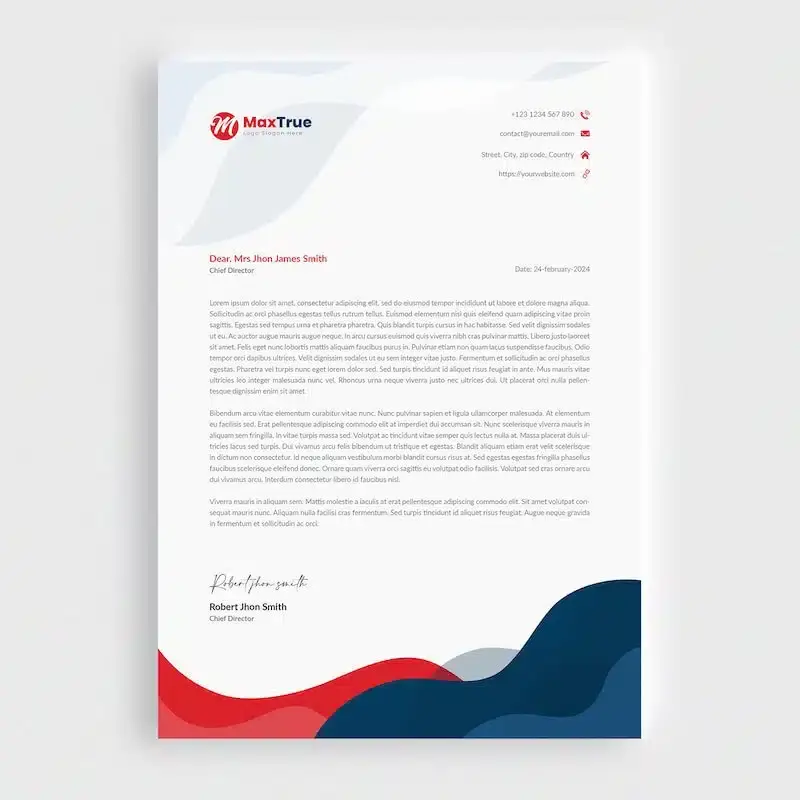In today’s competitive real estate market, buyers often compete against several other buyers or more for the same house. When a seller receives multiple offers, a buyer understandably wants to do what he can to stand out from the crowd.
For example, some may make an all-cash offer, and others may offer a price far above the asking price. Skipping the inspection process and making a larger earnest money deposit are other great ways to get a seller’s attention. However, with multiple offers in play, there is a good chance that other buyers are using at least one of these strategies in their offers.
Some home hunters recently have made offers on multiple properties, including at or above the asking price, and they have been unsuccessful at getting an offer accepted. This can create feelings of stress, frustration and even hopelessness. With this in mind, it may not be surprising that some buyers have taken a different approach to get noticed by writing a love letter to the seller.
A real estate love letter delves into the buyer’s enthusiasm about the home rather than focusing on the buyer at all. While this can be an effective strategy, it also comes with significant liability. What should you know about real estate love letters?

Standing Out with a Real Estate Love Letter
A real estate love letter adds a special, personal touch to an offer. Generally, a buyer will receive a stack of offers, which are real estate contracts filled with jargon. Except for a few important differences in names, dates and numbers, the offers may look identical. None are specialized aesthetically or personally to stand out.
With a real estate love letter, a buyer could describe his or her anticipated personal enjoyment of using the space. For example, this may include enjoying a cup of coffee in a beautiful, sunlit breakfast nook or watching the dog play in the backyard while grilling burgers. This gives the seller the knowledge that the home will continue to be loved by the next owner. More than that, it celebrates the many traits of the home that the seller will love.
Sellers want to know that their home will continue to be cared for properly and that its special features will be celebrated and used fully. Some buyers may feel particularly attached to a specific aspect of their homes, such as a grand oak tree or stained glass embedded in the front door.
A mention of these features in a love letter can give the seller peace of mind that they may not be altered or removed once the sale is completed. These and other factors cannot be fully conveyed in a legal contract, but they could sway the seller toward accepting one offer over others.
How Using a Love Letter Works
When you think of a love letter, you may think of a handwritten note delivered in a lovely envelope. While this is one approach that buyers take, others take the creativity of a love letter to the next level. For example, they may assemble a special video to pair with the love letter or even create a video as their exclusive message. There are other options as well, such as posting a Facebook message or sending an email.
Typically, after touring a home and falling in love with it, a buyer would craft his or her message of choice. The message should be conveyed from the buyer’s agent to the seller’s agent. The buyer and seller usually will not directly come in contact with each other. For example, the buyer may deliver a handwritten letter to his or her agent, and this letter would then make its way to the seller’s agent and then the seller.
You can see that electronic letters may be an easier format to work with. It could take hours or days for a written letter to make its way through the pipeline. On the other hand, a digital love letter could be conveyed in a matter of minutes. When you are dealing with a multiple-offer scenario, time may not be on your side.

The Effectiveness of Real Estate Love Letters
A love letter is essentially a way for the buyer to say, “This is why you should select my offer.” It pulls on heartstrings and has the potential to create an emotional connection between the buyer and seller. It may touch on some of the seller’s hot buttons in a way that a legal sales contract cannot. However, you may be wondering how effective a love letter actually is.
Some buyers may be extremely focused on ensuring that their beloved homes wind up in the right hands, but many others simply want to unload their homes for top dollar and with minimal hassle.
At the most basic and perhaps most important level, a real estate transaction is a financial transaction. Sellers often use net proceeds as a down payment for a new home, to fund part of their retirement or for other essential purposes. They want to maximize their return. Because of this, they may not be willing to accept a lower offer and leave potentially tens of thousands of dollars on the table simply because an interested party wrote a letter or created a video.
The bottom line is that the offer should be as strong as possible when you are dealing with a multiple-offer situation. This means that the offered price, closing date and other factors should be as competitive as is suitable for the buyer. Keep in mind that some sellers are more influenced by a quick closing date than top dollar, so all aspects of the offer should be stellar for the best results.
There are, however, instances when two offers are equally appealing. In this type of situation, a love letter may help to sway the seller to accept that buyer’s offer over other options. It may sound like it is worthwhile to write a love letter. After all, you may not know what the other offers will be or what the seller’s hot buttons are. However, you should be aware that there is a liability risk associated with the use of love letters.

The Question of Fair Housing Act Violations
The Fair Housing Act should be common knowledge for successful real estate agents. As it pertains to the relationship between a buyer, a seller and their real estate agents, a person cannot discriminate based on seven key factors. These are familial status, religion, national origin, color, race, sex or gender and disability. It may not initially be clear how a love letter would violate the Fair Housing Act, but a closer look can be revealing.
Consider, for example, that including a video or a photo showing one or more family members could directly create potential liability. This is because a video or photo may show race, color, gender, familial status and other factors. In some cases, they may convey religion by showing an icon or symbol. For example, including a picture of a family gathered around a Christmas tree could indicate that the buyers are Christian.
You do not necessarily need to include a video or a photo to violate the Fair Housing Act. For example, a buyer could describe gathering by a Christmas tree with the family. In fact, any mention of children or marital status could be a violation of the Fair Housing Act. In some cases, the wording may indicate ethnicity or national origin.
For example, if a buyer uses British English spelling, it may be clear that he or she is from the UK, Australia or another foreign country. Some words, such as barbie for grille or lass for girl, could also indicate national origin.
While there can be significant benefits associated with using a love letter in a real estate transaction, it is important to note that there are significant risks for liability. In fact, some sellers may even be advised by their agents not to open a love letter for the pure sake of avoiding exposure to liability. With this in mind, a buyer’s efforts to create a love letter may be for naught.
How to Avoid Violations of the Fair Housing Act
A violation of the Fair Housing Act comes with hefty penalties. For example, a fine of up to $16,000 may be levied through a civil court. If you or the buyer is a repeat offender, that amount could jump up to $65,000. In some more significant situations, the Department of Justice may get involved.
If you are convicted of a violation in this case, the fine may be as high as $100,000. What can you do to stay safe in this important area?
The primary focus of an initial offer should be the contract. With this in mind, the buyer and the buyer’s agent need to come together to create the most powerful offer that is suitable for the buyer. Being flexible with the closing date and making a larger deposit of earnest money are only some of the ways that a buyer can strengthen his or her offer.
Generally, buyers and sellers should be on the same page with regard to direct communication. Many real estate agents will instruct their clients to avoid creating or receiving love letters while contracts are being negotiated or even throughout the entire transaction. Even if the buyer insists on writing a love letter, the real estate agent does not need to agree to convey the message. Keep in mind that the National Association of Realtors discourages, but does not forbid, the use of love letters.
As a buyer’s agent, it is important that your client understands the potential risks versus rewards of writing a love letter. This should be a detailed conversation. For example, explain what the Fair Housing Act says and the penalties for violating it. Also, discuss how a simple statement that hints at religion, gender, familial status or other factors could result in a court case and large fines. In addition, the buyer should understand what the typical seller’s motivations are when selling a house.
In some states, the use of a love letter may be a moot point. For example, Oregon has passed a law saying that only customary documents can be conveyed between the buyer and seller during the transaction. Additional penalties may be assessed if these state laws are violated.

Best Practices for Writing a Real Estate Love Letter
Has your client asked you about writing a real estate love letter for a home that he or she is interested in? Perhaps the client has gone ahead and drafted a letter without your knowledge. What are the best practices to follow in a situation like this?
First, some MLS listings will specifically state that buyer love letters should not be submitted and will not be reviewed. If this is the case, the buyer’s real estate agent can specifically refer to this stipulation as a reason not to be a party in the delivery of the love letter.
In addition, a buyer’s agent should steer his or her client to create a strong offer. The buyer should be aware that objective criteria, such as the sales price in the offer and other similar factors, are the only criteria that a buyer may use to make his or her decision.
With this in mind, it should be clear to the buyer that writing a real estate love letter has minimal benefits at best. The buyer should understand the laws and risks associated with the love letter. With this in mind, the buyer should know that the risks of a love letter far outweigh the potential rewards.
If the client insists on writing a love letter, you should not be a party in the process in any way. This means that you should not help the client draft the letter or review it after is it written. In fact, you should not see it or handle it at all. The only advice that you should offer when speaking to your client about love letters should be surrounding the laws and penalties.
It may be smart to keep all correspondence about the matter in writing or to follow up a conversation with a written summary of the conversation. The buyer should be aware that you will not deliver the letter to the seller’s agent or the seller. By taking these steps, the buyer will assume all potential liability for the love letter, and you can stay out of hot water.

How to Structure a Real Estate Love Letter
Even with these warnings and precautions in mind, some buyers’ real estate agents will want to support their clients in creating a winning offer. They may believe that they can help their client avoid legal issues by creating a real estate love letter that does not violate the Fair Housing Act and related state laws in any way. If you choose to help your client, be aware that there is a formula that you can follow that may be highly effective.
An introduction for the letter may begin with some facts about who the buyer is. Where is the buyer moving from? Why is the buyer interested in living in that specific neighborhood? Again, avoid any mention of nationality, familial status and gender or sex. The introduction may delve into how much the buyer loves the home. What is it about the home that is particularly appealing to the buyer?
The body of the love letter may dig deeper into your plans for the home. Is it an old home that the buyer wants to restore while maintaining its historic character? Focus on the finer details about the home that may be appealing, such as the buyer’s love for the tile backsplash in the kitchen or the wood floors.
The home may be well-designed for entertaining, so the letter may talk about plans for dinner parties or backyard barbecues. If there are unique or bonus spaces, consider talking about how you plan to use these areas. For example, the buyer may work from home and may be interested in using a spare bedroom as a home office.
The conclusion should be short and sweet. The letter has already made the statement the desired points. Simply offering thanks for considering the offer and that the buyers look forward to being the next owners may suffice.
If your client insists on sending a letter or a video, keep religious objects, disability equipment, ethnic symbols and even family members out of the images and clips. Instead, consider including pets, a collage of clip art indicating your plans for the home or even a few pictures of the house itself that show off all of the great things that you love about it.
Conclusion
As a real estate agent, you must protect yourself against all violations and potential exposure to liability. At the same time, it is your duty to steer your clients clear of similar liability issues. The last thing that you want is for a seemingly simple transaction to turn into a legal nightmare, but this has been the unfortunate outcome for many transactions that have involved love letters.
It may be the best idea to define your specific code of conduct related to love letters before the matter presents itself. For example, will you take a hands-off approach, or will you help your clients draft a letter that is free of violations? By doing so, you can be better prepared to navigate through the situation when it presents itself.






